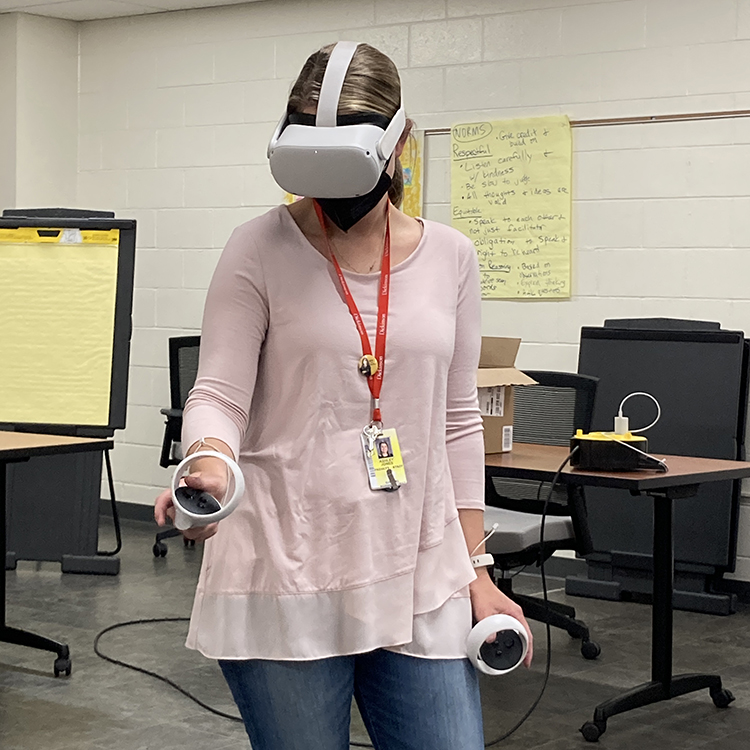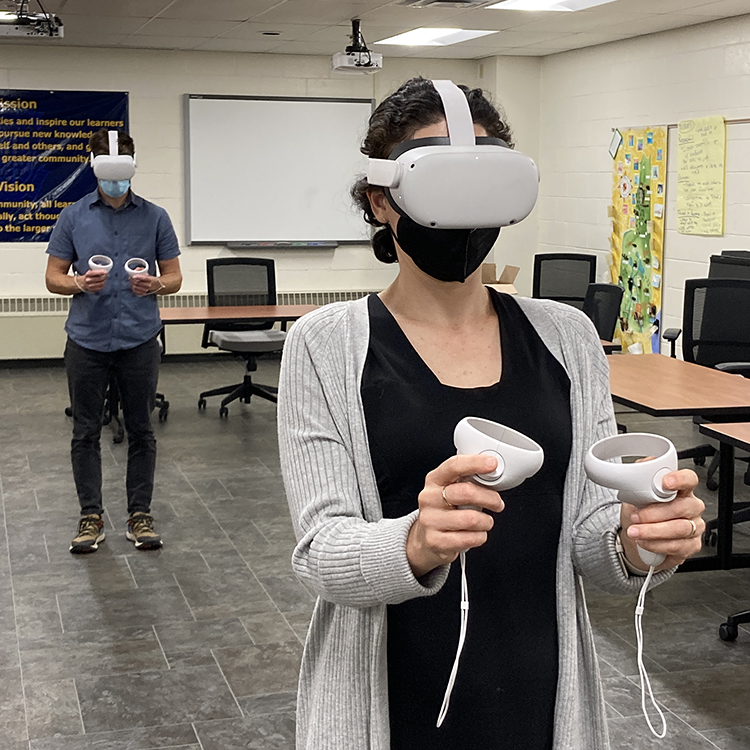As part of their work with the Explore Virtual Learning Committee, several high school teachers and staff recently had the opportunity to field test demonstration units of the Oculus Quest 2 Virtual Reality headsets provided by Superintendent Dr. Kimberly Rizzo Saunders and District Systems Director Mark Schaub.
“The capabilities of these VR headsets have come a long way in recent years,” said Schaub. “Just a few years ago, units were quite expensive, required external tracking cameras to define the VR space, and had to be hardwired to a computer. The latest units are much more capable than their predecessor models, have outward-facing tracking cameras built-in, are completely self-contained and very intuitive to use.”
Mathematics teacher Lance Flamino, Social Studies teacher Greg Leonard, librarians Rachael Bowman and Ashley Jones, and technology integrator Helfried Zrzavy took turns exploring the demo units by going through the setup procedure and trying out the handheld controls in a variety of simulations.
The Oculus Quest 2 is already prepared to connect to a well-developed ecosystem of immersive educational applications in areas as diverse as:
- Social Studies (MasterWorks: Journey Through History, Discover Egypt: King Tut’s Tomb, Pompeii VR, The Great Wall: Mysteries of China, American Experience, Anne Frank House VR, etc.)
- Science (Human Anatomy VR, Brain VR, Heart Tour, Plant Cell, Chemistry VR, Exciting Physics VR, Solar System, International Space Station Tour VR, etc.)
- Environmental Studies (David Attenborough’s Great Barrier Reef, David Attenborough’s First Life, Antarctic Ocean, Sea Level Rise Explorer, etc.)
- Art (Meeting Rembrandt: Master of Reality, Mocove Arts, Museo Soumaya VR, Art Gate, Art Plunge, etc.), and
- World Languages (Mondly, Dynamic Spanish Trips – Long Weekend in Spain, etc.)
There is even an app — Virtual Speech — that is designed to help students overcome public speaking hesitancy and improve their verbal communication skills through practice in realistic VR scenarios. Training rooms include public speaking, sales pitches, networking, business storytelling, and more.
Over the next several months, this new technology will be vetted more thoroughly to explore how VR could fit into existing strategies for engaging instruction, what use modalities will have to be developed, what evidence would need to be gathered to drive student outcomes, and what technical and pedagogical supports would be required to integrate VR successfully into student learning.

